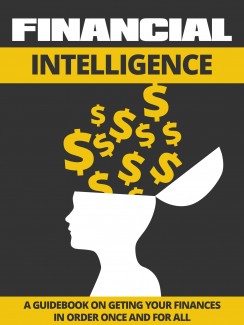 License Type: Giveaway Rights
License Type: Giveaway Rights  File Size: 652 KB
File Size: 652 KB File Type: ZIP
File Type: ZIP
 SKU: 56174
SKU: 56174  Shipping: Online Download
Shipping: Online Download
Ebook Sample Content Preview:
Chapter 6: Inventive Ways To Make Cash
Synopsis
There are places like CafePress.com or zazzle.com that let you make t-shirts, mugs, stickers, etc. and sell them without carrying any stock yourself. There are no lower limits, nothing for you to stock and no upfront fees. If you don’t sell anything, you don’t pay anything.
This is a little more challenging, but once applied, may really draw you a whole gob of buyers! Here likewise, I'd target a professional market.
All right, it’s not glamorous. However, it may be lucrative and it's a never ending need. The fantastic thing about writing resumes is that it's an easy part of your business to develop and outsource if you don't like to do it, or don't have the time to commit to it.
Innovation
So, how may a freelancer make the best of a creative medium? Rather simply, if you're mighty with the pen, then dollars may follow. Make cool slogans and humorous sayings and put them on tee shirts, stickers, mugs, and so forth. You may be the creator of the next big fad Tee. Think of the motto, “Sh*t Happens?” I think this was made popular in the flower child seventies. Can you even start to guess how many bumper stickers and tee shirts were sold with this? So, squeeze your brain and produce some fantastic pop culture!
T-shirts come in an assortment of styles and colors. Are you targeting a female audience? You may consider one of the many tee shirts made for women—the baby doll, tank, spaghetti straps, and so forth. Consider the color of the shirt. While colors are attention-getting, they may also clash or overwhelm out one another. Make certain the colors you choose— for the T-shirt itself, any printed message and the colors in any graphic —will work together to produce your canvas. You want your shirt color to complement or contrast with the design. Remember that pinkish letters might not show up well on a pinkish shirt— if the two pinks are too alike.
Have something to "state" to the world. An effective message states it in a memorable way. Think about slogans that have survived the ages, easy word combinations that most everybody has heard. As the tee shirt designer, it's your job to produce new slogans, adages or attention-getting phrases. Short is commonly better as it's more easily remembered. But, even a longer message may be memorable if it flows and has rhythm or rhyme.
Try out different fonts. When picking out a font, remember that legibility counts. But so does visual aspect. Pick a font that adds a layer of depth to your message. If the message is, for instance, "Work drives me mad," then the font may be scribbled or crazy-looking, and yet still legible. Ideally, you'll make your design in a graphics program (like Photoshop) and then use your image atone of the sites.
Consider the art. Draw/design the art to express feelings. Which emotion do you want to conjure up? Distinguish the elements in the image that naturally arouse the desired response and then accent those elements. Are you seeking to make a sense of beauty or fright in those who see your design? The key is to comprehend the pieces of the artwork and build on them.
Place the art and text so that one doesn't distract from the other. Art may be behind the text—if the art itself isn't too busy. Art may be above or below the text. This works particularly well with oblongshaped art so that the art basically underlines or sits above the line of text. Your art may also run along the side of the tee shirt, even crossing from front to back.
Scan and import your art images onto your file if you're using Photoshop or a like application. Incorporating art may enhance your message. Or utilize art by itself if the visual is the message you want to convey.
Ads
An illustration: In my city, there's a really prominent land agent. In all my years I had never seen this specific mode of advertising by an agent. He produced a “paper” about his geographic region. It’s only five or six pages (11x17) and published on newspaper stock. It has all of the local activities, what’s being constructed, how it will affect the biotic community, and so forth. Naturally, the paper is angled toward real estate news, but has just enough of the additional factors to draw in a loyal resident readership. In this paper, he deals ads to mortgage brokers, movers, title and loan companies, auto dealerships, and so forth. Now, when individuals go to sell their homes, who do you believe they’re going to call? Him, naturally! Because his name is before them bringing them news pertinent to their day-to-day lives week in and week out.
It’s crucial for you to know everything about your paper. If you're brand new and are making cold calls, you'll be pelted with questions about your publication. If you are able to answer them right, you'll build credibility with your prospects. If you blunder and can't give solid info, you'll struggle miserably.
You must be acquainted with your rates and the size of each ad you have for sale. Ads can be sold either by the column-inch or by the pages, which are subdivided into particular sizes like Full-page, Halfpage, 1/4-page, and so forth. It's crucial that you become fully-able to spot an ad and distinguish its size. Charge this information to memory.
Make a list of the business people you know. Begin making calls to set up sales. If you're new to the ad sales game, it's safe to assume that you won't have an existing book of business. That surely doesn't mean that you won’t be able to begin selling. Almost everybody knows somebody who's either in management or owns a business. This is your quick market.
It's important for you to produce a sense of urgency for your prospects. Don't be pushy, though. Nobody likes to be pressured into anything. But, keep in mind that you're not selling a physical product like a car or copy machine. Your job is to sell the "concept" of advertising.








